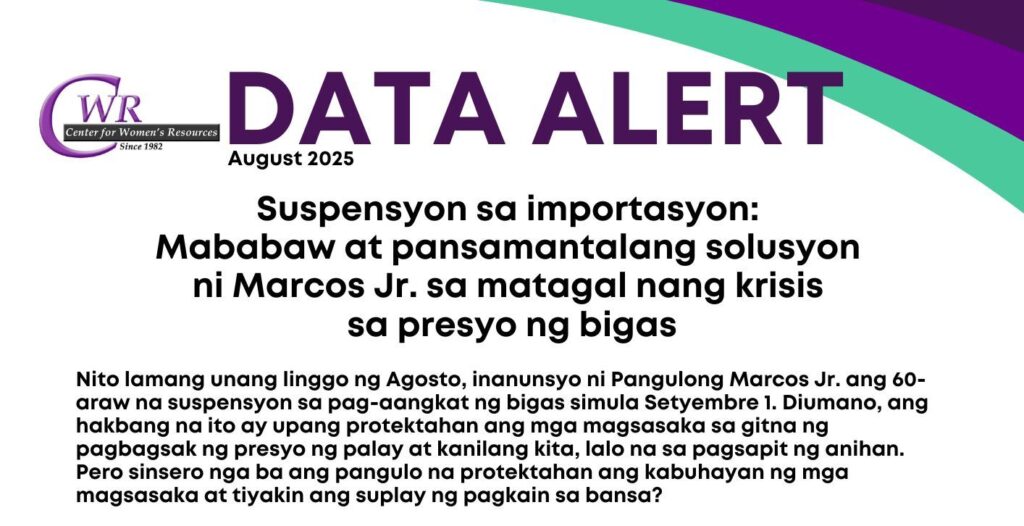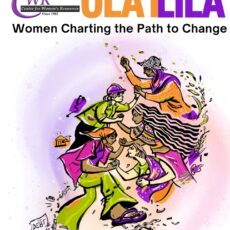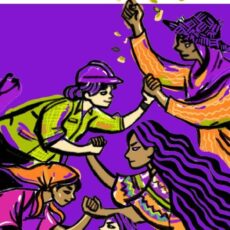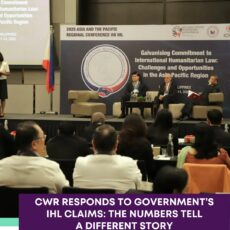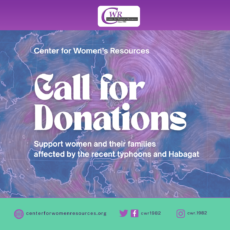Survivors and their children gathered in Marikina to commemorate the 10th anniversary of Typhoon Ondoy.
Ulat Lila: Women charting the path to change
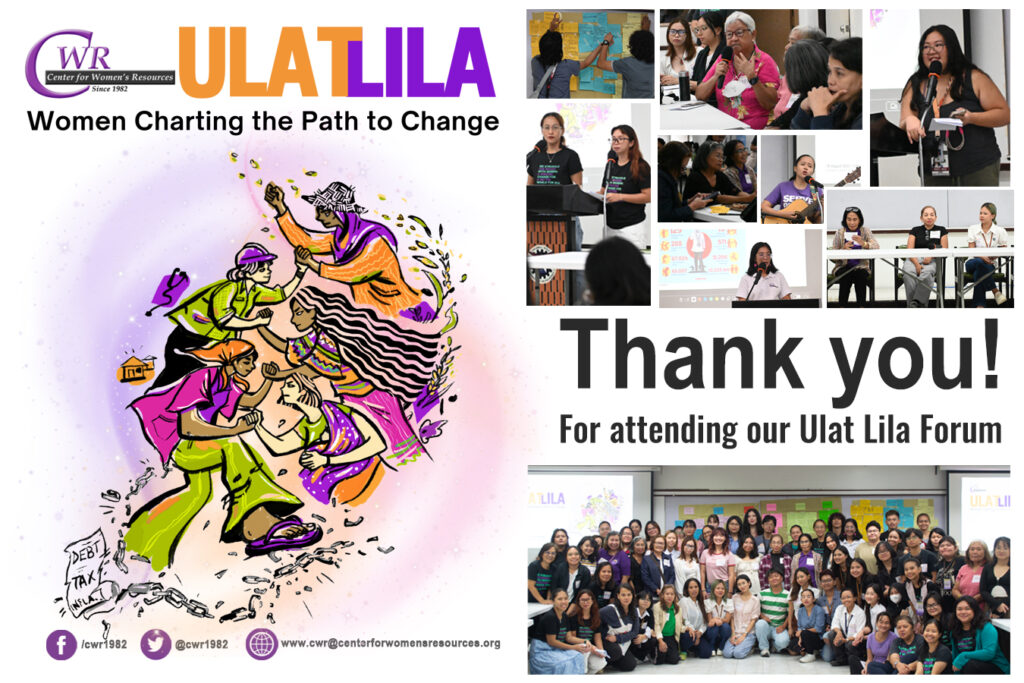
Thank you very much for joining CWR’s Mid-Year ULAT LILA! We hope to see you again soon on other CWR activities!
For inquiries you may message us via our social media or our email (cwr@centerforwomensresources.org). Thank you! #ulatlila#defendfilipinowomen
Ulat Lila | Ang tumitinding pagdurusa ng kababaihan sa tatlong taon ni Marcos Jr. (Hulyo 2025)
Lubhang dama ng kababaihang Pilipino ang paglala ng krisis at pagsadsad ng pamumuhay sa kalagitnaan ng panunungkulan ng
ng mga polisiya para sa ikauunlad ng mamamayan at kababaihan, patuloy ang pagpapatupad nito ng mga neoliberal na patakaran na batbat ng korapsyon at pagbibigay pabor sa iilang malalaking dayuhang kapitalist panginoong maylupa.
Patuloy ang paglobo ng utang ng bansa, samantalang patuloy na tinitipid ang kababaihan sa mga serbisyong dapat nilang tinatamasa. Patuloy ang pagtaas ng presyo ng bilihin sa gitna ng krisis sa trabaho, kabuhayan, at malawakang kawalan ng lupa. Pinatindi rin ang
militarisasyon at paglabag sa karapatang pantao ng kababaihan at mamamayan. Malinaw sa ganitong kalagayan ang pagkapako ng mga pangakong pag binitiwan nila ni Sara Duterte noong eleksyong 2022.
Sa tatlong taon ng kasalukuyang kontra-mamamayan, kontra-mahihirap, at kontra nagsasadlak sa masang Pilipino sa kahirapan?
Read and download: https://centerforwomensresources.org/wp-content/uploads/2025/09/CWR-UL-July-2025.pdf
CWR Responds to Government’s IHL Claims: The Numbers Tell a Different Story
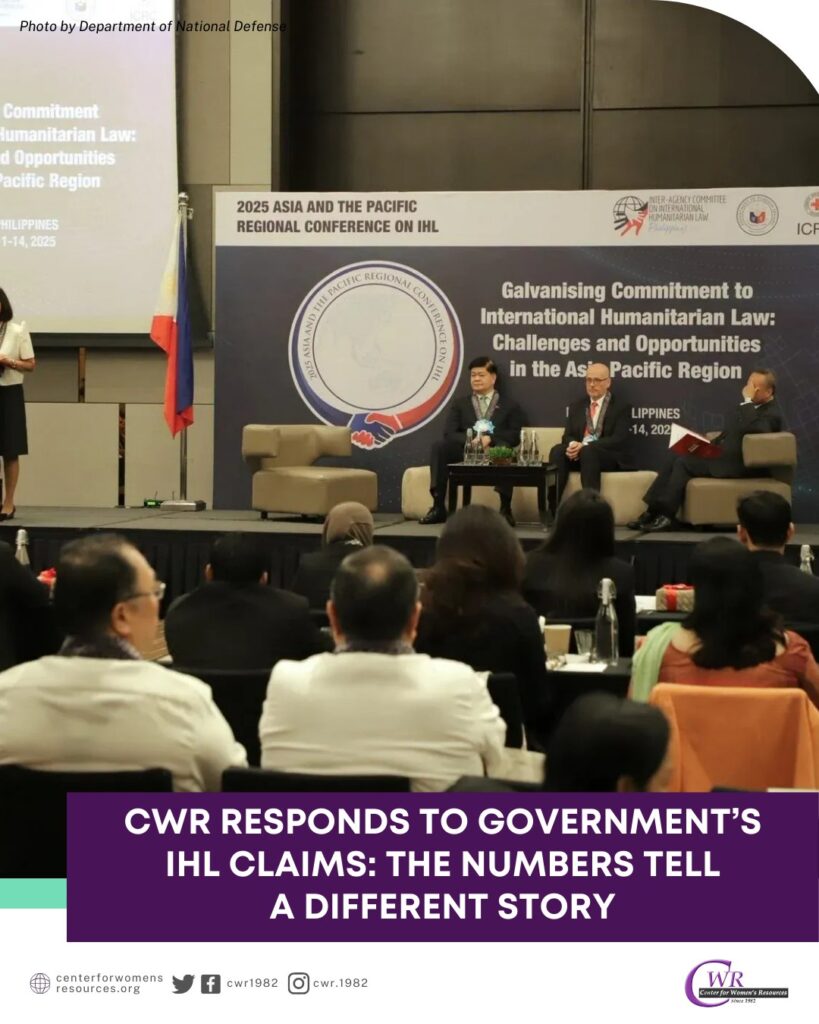
The Center for Women’s Resources (CWR), a 43-year-old research, education, and advocacy institution for and by women, belies the Marcos Jr. administration’s hollow and deceptive commitment to International Humanitarian Law (IHL) as the government hosts the world’s largest international human rights law gathering from August 11 to 14, 2025, the Asia Pacific Regional Conference on International Humanitarian Law.
Despite President Marcos Jr.’s pronouncements on the international stage about championing human rights, his administration continues to perpetrate widespread attacks on the Filipino people, particularly women, children, and human rights defenders, undermining the very principles of the IHL.
In his three years in office, an alarming pattern of women activists, development workers, and human rights defenders becoming specific targets of state repression have emerged. Attacks against individuals and communities asserting their democratic rights continue to escalate. Over five million cases of threats, harassment, and intimidation have been reported. As of March 2025, 745 individuals are currently imprisoned, with 160 arrested under the current administration. Among them are 148 women and 106 elderly individuals. At least 124 cases of extrajudicial killings have also been documented.
Notably, community organizers such as Alaiza Mari Lemita, Desiree Patuñ-og, and Sarah Abellon-Alikes, who have long worked to advance women’s rights and community welfare, have been unjustly charged under the Terrorism Financing Prevention and Suppression Act of 2012. Reputable NGOs like the Community Empowerment Resources Network (CERNET) and the Paghidaet sa Kauswagan Development Group (PDG), known for their decades-long service to marginalized sectors, are now facing criminalization. At least 69 development workers and 29 NGOs were slapped with terrorism financing charges in 2024 alone, according to the Defend NGOs Alliance.
Under the Marcos Jr. administration, repressive state mechanisms have not only been sustained, but have also aggressively expanded. The budget for the National Task Force to End Local Communist Armed Conflict (NTF-ELCAC) has ballooned to ₱7.8 billion in 2025, three times its ₱2.1 billion allocation in 2024. The increase is alongside the issuance of Memorandum Circular 83, which institutionalizes the National Action Plan for Unity, Peace, and Development (NAP-UPD) 2025–2028, further embedding militarized approaches into governance under the guise of peace and development. This program aims to include private sectors, civil society organizations, and other stakeholders, but there are concerns it could lead to more organized and widespread violations of human rights, particularly against people who criticize government policies.
CWR denounces the government’s use of international human rights platforms to mask continued human rights violations. The continued attacks on women and children, the weaponization of the law against activists, and the blatant disregard for International Humanitarian Law (IHL) all reveal a government more concerned with its international image than the welfare of its people.
Hosting the largest global gathering on international human rights law while violating the very principles it claims to uphold is a shameless attempt to wash the blood from the hands of the Marcos Jr. government for its atrocities against the Filipino women and people. As the Asia Pacific Regional Conference on International Humanitarian Law concludes today, the Center for Women’s Resources (CWR) calls on international bodies, human rights institutions, and the global public to hold the Philippine government accountable for these grave violations. We stand in solidarity with Filipino women and communities who continue to resist state oppression and defend their fundamental rights.
CALL FOR DONATION! Support women and their families affected by the recent typhoons and Habagat!
We are reaching out on behalf of the victims of the recent typhoons Crising, Dante, and Emong, that devastated thousands of families that have lost their homes and belongings, leaving thousands without basic necessities such as food, clean water, shelter, and medical care, especially women and children.
Let us unite in championing better, comprehensive, and systemically sustainable solutions to mitigate floods and disasters, while also safeguarding women’s human rights and fostering development.
#CrisingPH#ReliefPH#CommunitySupport#DisasterRelief#disasterreliefefforts






